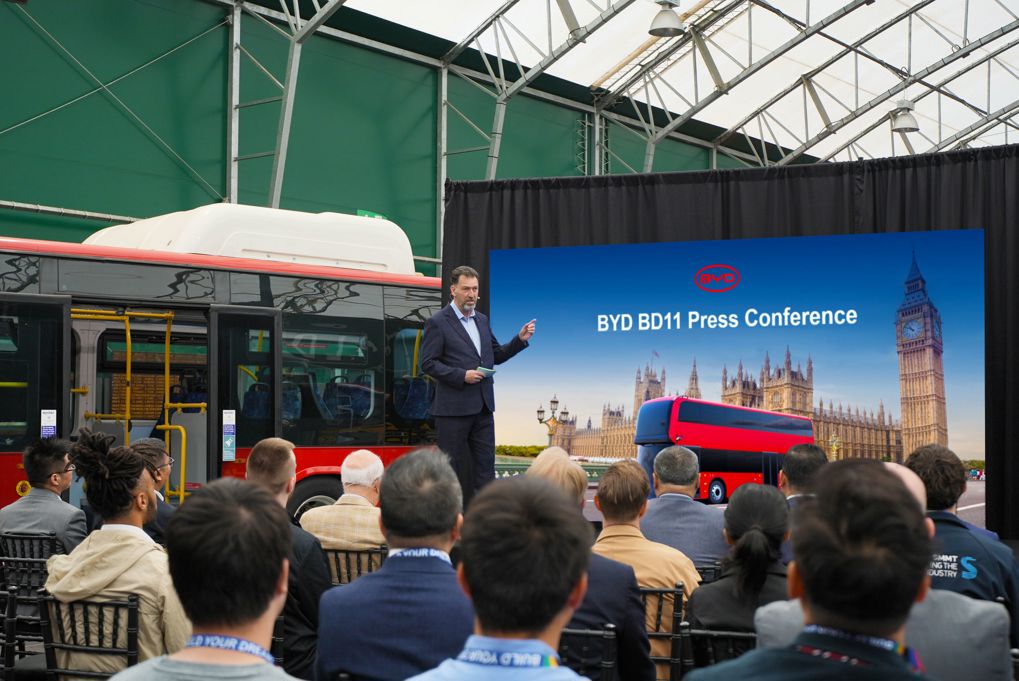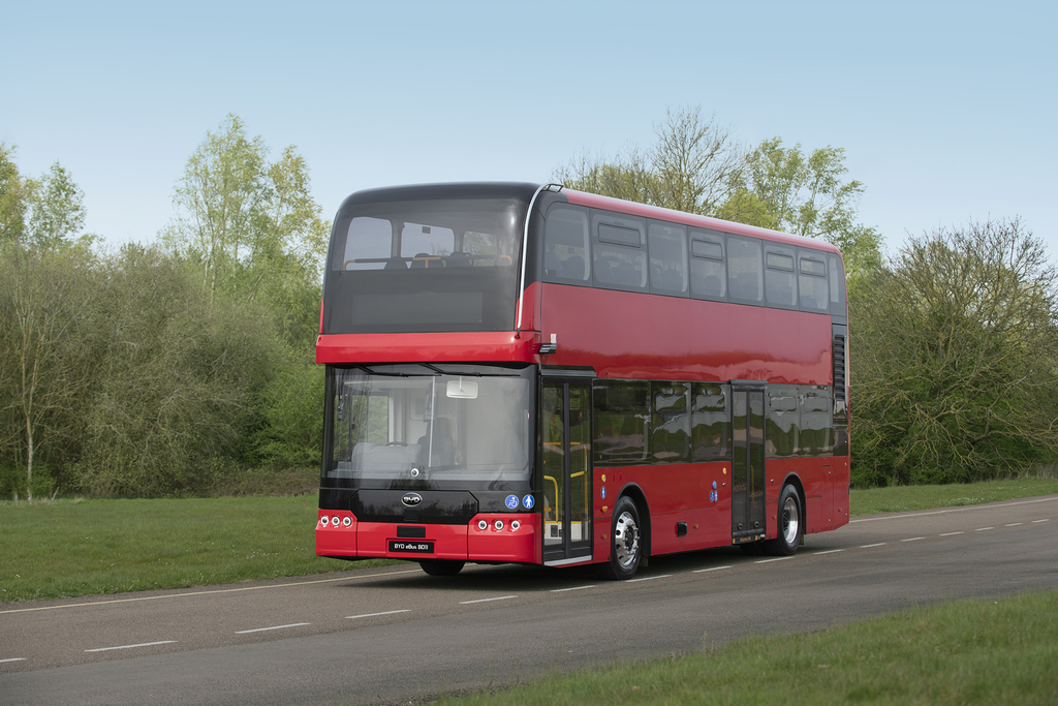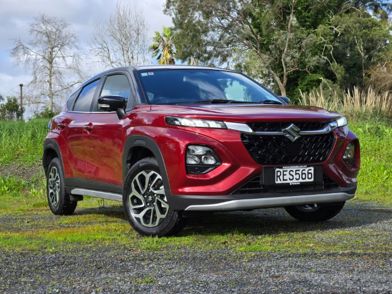Chinese maker Geely is now the driving force behind London's Black Cabs: zero-emission models make up more than half of the city's fleet (nearly 8000 on the road) and most of those are made by Geely's London Electric Vehicle Company (LEVC). Made in the UK, mind.

But another Chinese brand is now laying claim to another UK transport icon. BYD has just launched the BD11, a double decker bus powered by the same Blade battery technology used in its passenger cars.
London buses are not new to BYD. Over a decade ago it launched the K9E, a single-level electric bus with a chassis "dedicated to the London public transport network".
Nor are electric double-deckers new to London. But BYD says the BD11 is specifically designed for the city, with plans to develop a provincial model soon.

The BYD BD11 has a Blade battery with capacity of up to 532kWh. It supports dual-gun and fully automated "pantograph" fast charging (a robotic arm simply connects to the vehicle) up to 500kW, which means that the bus can be recharged from 0-100 per cent in two hours.
There are already over 1800 BYD electric buses in operation on UK roads.
There are also BYD-powered buses on the road in New Zealand. Since 2021, Alexander Dennis Limited (ADL) has been building a bus on a BYD chassis called the Enviro200EV XLB, with a range of 300km.
Other bus companies such as Kiwi Bus Builders, Electric Autobus and Global Bus Ventures (supplier of NZ's first hydrogen fuel cell public transport vehicle) are also making EV buses for NZ service.
There's a NZ Government mandate for councils to purchase only electric buses from 2025. Auckland moved to that procurement model in July 2021.





